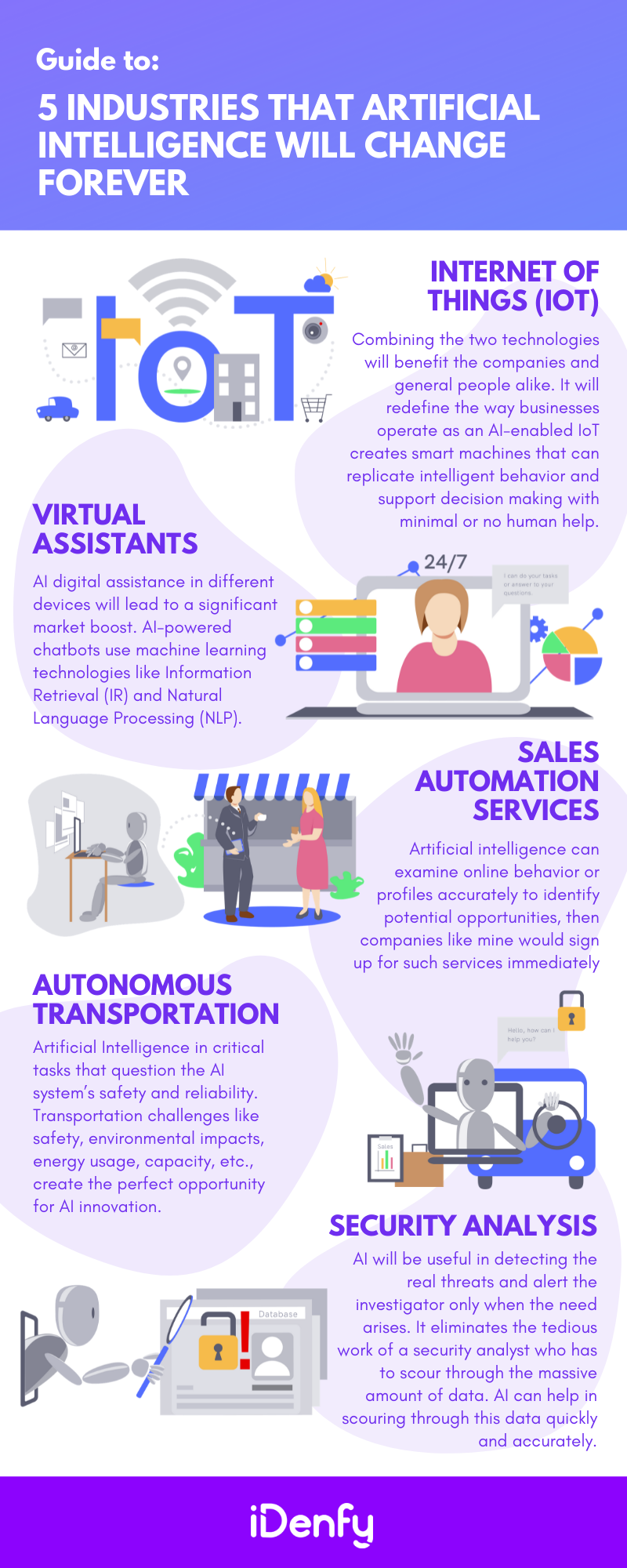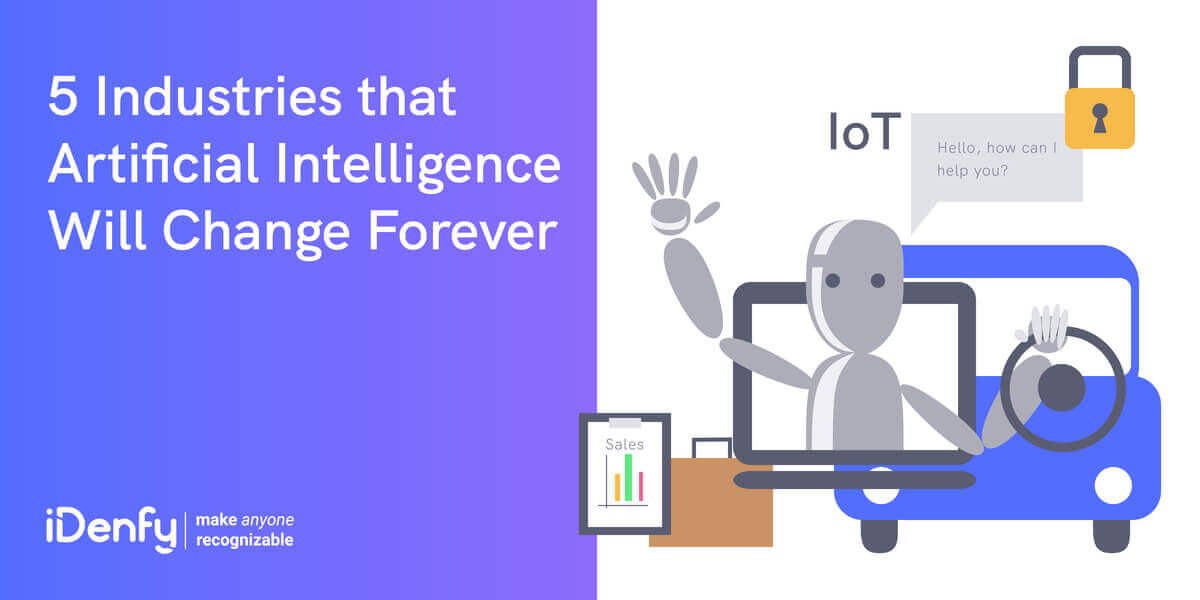Today, industries are evolving and transforming at a staggering rate, where small business is capturing a big market share. Technology is the backbone of our society and has touched everyone’s life in some form. There is a constant chaos of massive data flowing from one point to another. Humans generate such an enormous amount of data that companies and organizations are virtually unable to record, monitor, and capitalize.
Thankfully, artificial intelligence is involved in this chaos, and with current upgrades, it is helping many companies make the most of it. It automates data analysis, saving companies time and cost during vital decision-making.
We dive deeper into AI, discussing its potential, current use cases, and future trends that will probably emerge in different sectors.
What is the Importance of Artificial Intelligence (AI)?
Companies use artificial intelligence to analyze data fast and across numerous channels. It also allows accurate fraud detection and offers high-quality customer relationship management. All these abilities mean that companies using artificial intelligence can diversify faster, thus, obtaining a competitive advantage.
Complex artificial intelligence assists in finding appropriate solutions to business problems in a human-like manner. The process involves teaching human intelligence and feeding them into the computer as an algorithm.
Today, artificial intelligence and machine learning are applied to intelligent executions, including smart cars, robots, electronics, and hundreds of business processes that now use AI to automate and free up man force. It also reduces work hours, and the resources involved during manual processing can now be applied in other essential fields.
Can AI Replace Jobs?
With the rise of ChatGPT, AI is becoming a mainstream thing. According to a recent Goldman Sachs report, approximately 300 million jobs might undergo transformation due to generative AI, implying that about 18% of global labor tasks could be automated. This impact is expected to be more profound in advanced economies compared to emerging markets.
For example, a joint study conducted by the University of Pennsylvania and OpenAI researchers revealed that a specific group of educated white-collar employees earning up to $80,000 annually face the highest susceptibility to workforce automation.
The report also highlights that agriculture, mining, and manufacturing occupations are at lower risk of generative AI impact. On the other hand, professions within information processing industries, particularly in IT, are the most vulnerable due to the close alignment between job tasks requiring “programming and writing skills” and the capabilities of models like GPT.
The Top Industries that Will Get Disrupted by AI
Through the power of machine learning, companies collect and process the vast mass of first and third-party data to acknowledge patterns and make forecasts in real-time. It opens a new-age of insights to understand the unique needs of the customers and generate creative ideas. When you build artificial intelligence into the system, it saves tons of time by streamlining essential tasks.
And the most vital result of including progressive machine learning in the system is that it improves people’s lives. Leading web apps are destined to transform the mobile customer experience. It is due to the predictive manner of their upgraded caching and data management ways.
1. Internet of Things (IoT)
The business atmosphere is changing fast with the adoption of the Internet of Things. The IoT is assisting organizations in significantly capturing a large amount of data flow from different sources, ranging from building management and security to manufacturing data collection. But collecting the data is one thing, and processing it to reach a definitive result is another. It takes a lot of time to process data from multiple sources, turning data analysis into a time-consuming and tedious job.
That is where artificial intelligence comes in. When you combine the two technologies, it will benefit companies and general people alike. It will redefine the way businesses operate as an AI-enabled IoT creates smart machines that can replicate intelligent behavior and support decision-making with minimal or no human help.
2. Sales Automation Services
In layman’s language, a sales automation system involves speeding up and improving the sales process using technologies. Using technology for sales automation removes or automates hidden labor and allows the Sales and Marketing team to work on other valuable tasks. Especially with the use of AI, businesses can create marketing presentation in seconds. The purpose of the whole process is to increase efficiency with minimal effort and generate more revenue.
Companies are quickly adopting artificial intelligence for their sales automation services. Many organizations invest in AI-based sales tools to streamline their business process. When applied effectively, artificial intelligence can help in:
- Data insights
AI can provide useful and relevant data insights that are valuable for marketing teams with no access to data engineers.
- Personalization
AI can be useful in identifying customer behavior and preferences and personalizing each content in real-time. Such AIs exist today as product recommendations and chatbots on e-commerce platforms.
3. Virtual Assistants
In 2019, intelligent virtual assistants valued the global market size at $3.7 billion and are set to grow at a 34% Compound Annual Growth Rate (CAGR) in the coming years. Service-based companies want effectiveness, and integrating AI digital assistance into different devices will lead to a significant market boost. AI-powered chatbots use machine learning technologies like Information Retrieval (IR) and Natural Language Processing (NLP). Market giants like Google and Facebook have used this technology to release multi-turn chatbots that can reproduce several human-like conversations.
4. Autonomous Transportation
The transportation industry is heavily experimenting with and applying artificial intelligence in critical tasks that question the safety and reliability of AI systems. As the years go by, significant transportation challenges like safety, environmental impacts, energy usage, capacity, etc., create the perfect opportunity for AI innovation. For example, in 2017, AI technologies had a market share of $1.2 to $1.4 billion. Experts project that the same market will grow from $3.1 to at least $3.5 billion by 2025.
5. Security Analysis
A regular security operations center (SOC) includes security analysts and investigators. During an event, the analyst will oversee and alert an investigator who will determine if the event is a threat or not. The investigator will address the analyst about the event, who will learn when events are threats, regular activities, or false positives.
With AI in place, it will learn from its handler (investigator) the real threats and what regular activity is. As time passes, the AI will be useful in detecting real threats and alerting the investigator only when needed. It eliminates the tedious work of a security analyst who has to scour through a massive amount of data. AI can help in scouring through this data quickly and accurately.
Final Words
Artificial intelligence is taking the front seat when it comes to technological innovation. Organizations and businesses are investing heavily in this field, especially after the pandemic that brought the world to a standstill.
At iDenfy, we’ve developed a fully streamlined AI-powered identity verification solution along with other automated fraud prevention tools to help regulated entities, such as banks and other online platforms, welcome new users. The software detects fake documents and other fraudulent attempts, such as deepfakes, during the user onboarding process, helping businesses save time and costs. This means compliance teams no longer need to review ID documents manually and can accept clients remotely from all around the world.
So what are you waiting for? Try out our market-leading identity verification for free.
This blog post was updated on the 28th of August, 2024, to reflect the latest insights.





